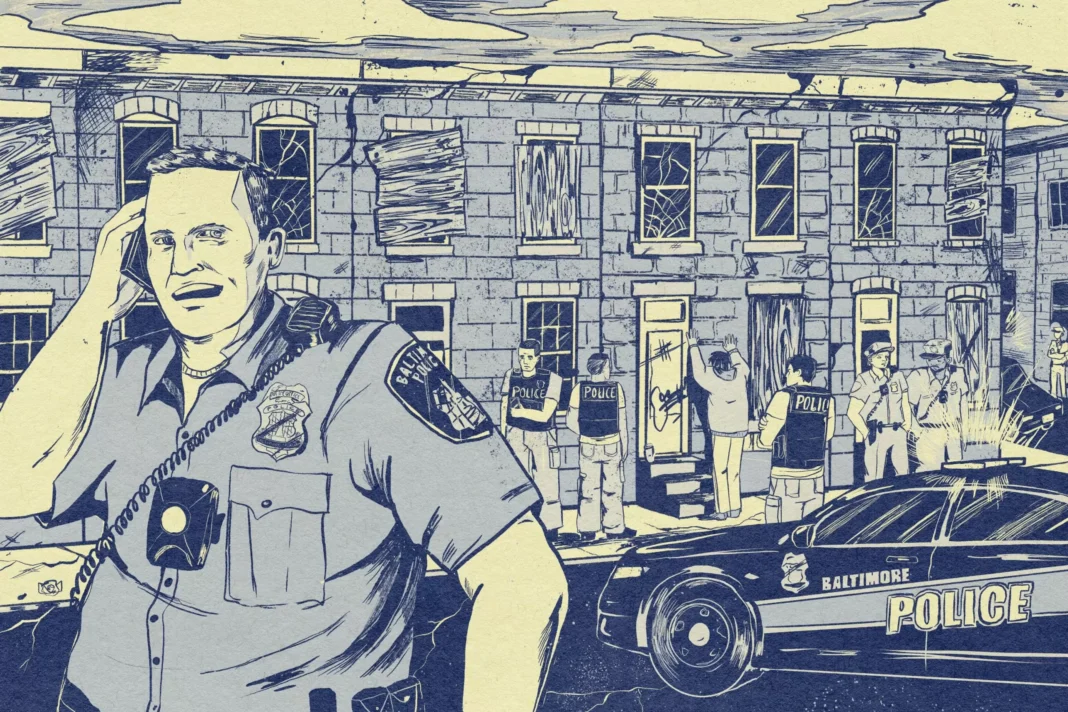Analysis of Baltimore Police and Open Baltimore data shows that, despite ongoing reforms, data transparency and retention have gotten worse.
Baltimore, the largest city in the state of Maryland, has been making efforts to improve its police department and build trust with its citizens. However, recent analysis of Baltimore Police and Open Baltimore data has revealed a concerning trend – despite ongoing reforms, data transparency and retention have gotten worse.
Transparency and accountability are crucial elements for any police department to gain the trust and cooperation of their community. The Baltimore Police Department has been under scrutiny for years due to its history of misconduct and corruption. In 2017, the Department of Justice issued a scathing report on the department’s practices, highlighting widespread racial discrimination, use of excessive force, and lack of accountability. This report led to a consent decree between the city and the Department of Justice, outlining reforms that the Baltimore Police Department must implement to address these issues.
One of the key aspects of this consent decree was to improve data transparency and retention. The Open Baltimore website, launched in 2012, was created to provide the public with access to data on police activity, including arrests, use of force incidents, and civilian complaints. However, recent analysis by the Baltimore Sun has revealed that this data has not been updated since December 2020, despite the department’s promise to update it monthly.
This lack of data updates raises concerns about the department’s commitment to transparency and accountability. Without up-to-date data, it becomes challenging for citizens and researchers to understand the impact of the reforms and hold the department accountable for its actions. It also hinders the department’s ability to identify and address any ongoing issues within its ranks.
Moreover, the analysis also found that the Baltimore Police Department has been withholding critical data on the use of force by officers. This data, which is required to be reported to the Department of Justice, has not been submitted since the consent decree was signed in 2017. This is a clear violation of the consent decree and shows a lack of commitment to reform and transparency.
The lack of transparency and data retention has not gone unnoticed by the community. Civil rights activists and community leaders have expressed their disappointment and frustration with the department’s failure to fulfill its promises. They argue that without accurate and updated data, it becomes challenging to evaluate the effectiveness of the reforms and ensure that the department is serving its citizens equitably.
The Baltimore Police Department has responded to these findings, stating that the delay in data updates was due to technical issues, and they are working to resolve them. However, this explanation does not justify the department’s failure to report use of force data as required by the consent decree. It also raises questions about the department’s ability to implement these reforms successfully.
It is crucial for the Baltimore Police Department to take immediate action to address this issue and restore trust with the community. The department must fulfill its obligations under the consent decree and ensure that data transparency and retention are a top priority. The department should also provide a detailed plan on how it will improve data collection and reporting to prevent such delays in the future.
In addition to the Baltimore Police Department, the city also has a responsibility to hold the department accountable for its actions. The Mayor’s office, city council, and other city agencies must work together to monitor the progress of the consent decree and ensure that the department is meeting its obligations. They must also address any barriers that may be hindering the department’s ability to comply with the reforms.
Transparency and accountability are vital for building trust between the police and the community. Without these elements, it becomes challenging for the police to effectively serve and protect their citizens. The Baltimore Police Department must take immediate action to improve data transparency and retention, and the city must hold them accountable for their actions. Only then can we hope to see real progress in building a more just and equitable police department in Baltimore.
In conclusion, the analysis of Baltimore Police and Open Baltimore data has revealed a concerning trend – data transparency and retention have gotten worse despite ongoing reforms. The Baltimore Police Department must take immediate action to address this issue, and the city must hold them accountable for their actions. It is only by working together that we can hope to build a more transparent and accountable police department, and ultimately, a safer and more just community for all.


